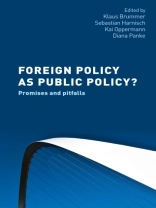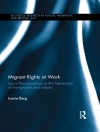This book examines how foreign policy analysis can be enriched by ‘domestic realm’ public policy approaches, concepts and theories. Starting out from the observation that foreign policy has in many ways become more similar to (and intertwined with) ‘domestic’ public policies, it bridges the divide that still persists between the two fields. The book includes chapters by leading experts in their fields on arguably the most important public policy approaches, including, for example, multiple streams, advocacy coalition, punctuated equilibrium and veto player approaches. The chapters explore how the approaches can be adapted and transferred to the study of foreign policy and point to the challenges this entails. By establishing a critical dialogue between approaches in public policy and research on foreign policy, the main contribution of the book is to broaden the available theoretical ‘toolkit’ in foreign policy analysis.
Содержание
1 Introduction: foreign policy as public policy: exploring promises and pitfalls of public policy approaches for foreign policy analysis — Klaus Brummer, Sebastian Harnisch, Kai Oppermann and Diana Panke
Part I: Actor-centered perspectives
2 The multiple streams approach in foreign policy — Spyros Blavoukos
3 Punctuated equilibrium theory and foreign policy — Jeroen Joly and Friederike Richter
4 Foreign policy applications of the advocacy coalition framework — Jonathan J. Pierce and Katherine C. Hicks
5 Veto player approaches in public policy and foreign policy — Kai Oppermann and Klaus Brummer
Part II: Structural perspectives
6 New institutionalism and foreign policy — Siegfried Schieder
7 The network approach and foreign policy — Christopher Ansell and Jacob Torfing
8 Policy diffusion and transfer meet foreign policy — Katja Biedenkopf and Alexander Mattelaer
9 Policy learning in public policy studies: toward a dialogue with foreign policy analysis — Sebastian Harnisch
10 Conclusion: the promise and pitfalls of studying foreign policy as public policy — Juliet Kaarbo
Index
Об авторе
Klaus Brummer holds the Chair of International Relations at the Catholic University of Eichstätt-Ingolstadt, Germany
Sebastian Harnisch holds the Chair for International Relations and Comparative Foreign and Security Policy Studies at Heidelberg University, Germany
Kai Oppermann is Professor of Politics at the Chemnitz University of Technology, Germany
Diana Panke is Professor of Political Science and holds the Chair in ‘Multi-Level Governance’ at the University of Freiburg, Germany












